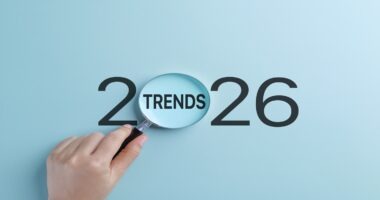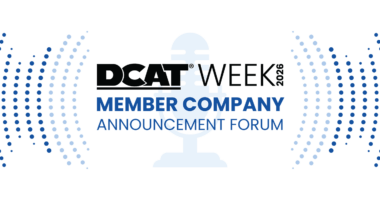Antibody Drug Conjugates: Will the Growth Prospects Continue or Not or is the Shine Off?
Antibody drug conjugates (ADCs) have been a strong niche in the global oncology drug market What are the leading commercial ADCs and key pipeline contenders, and will ADCs continue to bode well for CDMOs/CMOs? A look at what lies ahead.
By Patricia Van Arnum, Editorial Director, DCAT, pvanarnum@dcat.org
ADCs: a snapshot view
Antibody drug conjugates (ADCs) continue to be a strong and growing sector of the global oncology drug market, which represents the largest therapeutic sector in the global bio/pharmaceutical industry on a value basis. ADCs are composed of both biologic and small-molecule components and consist of a small-molecule compound (for oncology applications, a cytotoxic compound) linked to a monoclonal antibody. Industry estimates place the global ADC market at approximately $10 billion, and the ADC sector continues to attract the interest of both large and small bio/pharma companies.
Two new ADCs enter the market
To date (as of May 2025), there have been 15 ADCs approved by the US Food and Drug Administration (FDA), with two new ADCs approved thus far in 2025 (see Table I at end of article). Earlier this month (May 2025), AbbVie was granted accelerated approved by FDA for Emrelis (telisotuzumab vedotin) for treating a certain form of locally advanced or metastatic non-squamous non-small cell lung cancer (NSCLC). Specifically, the drug was approved for patients with metastatic, non-squamous NSCLC with high c-Met protein overexpression (OE) who have received a prior systemic therapy. Approximately 85% of lung cancers are classified as NSCLC, and the c-Met protein is found to be overexpressed in approximately 25% of advanced EGFR wild type, non-squamous NSCLC patients, with approximately half of these patients having high c-Met overexpression, defined as ≥ 50% of tumor cells with strong (3+) staining by an immunohistochemistry test, according to information from AbbVie.
Emrelis is AbbVie’s first internally developed solid tumor medicine, its first solid tumor FDA approval in lung cancer, and its second FDA-approved ADC. Its other commercial ADC, Elahere (mirvetuximab soravtansine-gyxn) for treating ovarian cancer, was gained by its $10.1-billion acquisition of ImmunoGen in early 2024. That acquisition also netted AbbVie ADC pipeline candidates, including IMGN151, a Phase I FRα ADC for treating ovarian cancer with the potential for expansion into other solid tumor indications, and pivekimab sunirine, currently in Phase II, an anti-CD123 ADC targeting blastic plasmacytoid dendritic cell neoplasm (BPDCN), a rare blood cancer, which was granted FDA breakthrough therapy designation for the treatment of relapsed/refractory BPDCN. It is also being evaluated for treating acute myeloid leukemia.
AbbVie also has several other ADC drug candidates: ABBV-319 as a single-agent and as a combination therapy for treating B-cell malignancies; ABBV-706 for treating small-cell lung cancer, central nervous system tumors, and neuroendocrine carcinomas; ABBV-969 for treating prostate cancer; Temab-A (telisotuzumab adizutecan) (ABBV-400) for treating non-small cell lung cancer, colorectal cancer, and gastroesophageal adenocarcinoma.
The other ADC approved this year (2025) is from AstraZeneca and Daiichi Sankyo, which received FDA approval for Datroway (datopotamab deruxtecan) for treating certain forms of breast cancer (unresectable or metastatic hormone receptor (HR)-positive, HER2-negative breast cancer in patients who have received prior endocrine-based therapy and chemotherapy for unresectable or metastatic disease). Datroway is the second ADC approved from a collaboration between AstraZeneca and Daiichi Sankyo. The other ADC from that collaboration is Enhertu (trastuzumab deruxtecan) for treating HER2-positive breast cancer, which is one of the top-selling ADCs. In 2024, Enhertu’s combined sales by AstraZeneca and Daiichi Sankyo reached $3.75 billion.
Update: Merck & Daiichi Sanyko ADC pact
Daiichi Sanyko is also partnered with Merck & Co. for the development of ADCs. The companies formed a global licensing and commercialization ADC pact in a deal worth up to $22 billion ($4 billion upfront, $1.5 billion in continuation payments, and $16.5 billion in milestone payments) in October 2023, to jointly develop and commercialize three ADC drug candidates: patritumab deruxtecan (HER3-DXd), ifinatamab deruxtecan (I-DXd), and raludotatug deruxtecan (R-DXd), except in Japan where Daiichi Sankyo maintains exclusive rights. Daiichi Sankyo is solely responsible for manufacturing and supply. In August 2024, the global co-development and co-commercialization agreement was expanded to include gocatamig (MK-6070/DS3280), which the companies will jointly develop and commercialize worldwide, except in Japan, where Merck will maintain exclusive rights. Merck will be solely responsible for manufacturing and supply for gocatamig.
The companies had a setback with one of those ADC candidates, patritumab deruxtecan, when the companies announced this week (May 29, 2025) that they were voluntarily withdrawing the biologics license application in the US for patritumab deruxtecan, for treating locally advanced or metastatic EGFR-mutated non-small-cell lung cancer due to Phase III survival rates as well as discussions with FDA. A global clinical development program is still underway evaluating the efficacy and safety of patritumab deruxtecan across other cancers, and trials in combination with other anticancer treatments are also underway.
The Daiichi Sankyo ADC portfolio consists of seven ADCs in clinical development derived from two distinct ADC technology platforms discovered in-house by Daiichi Sankyo. The ADC platform furthest in clinical development is Daiichi Sankyo’s DXd ADC technology, where each ADC consists of a monoclonal antibody attached to a number of topoisomerase I inhibitor payloads (an exatecan derivative, DXd) via tetrapeptide-based cleavable linkers. The DXd ADC portfolio currently consists of Enhertu, a HER2 directed ADC, and Datroway, a TROP2 directed ADC, which are being jointly developed and commercialized globally with AstraZeneca. Patritumab deruxtecan (HER3-DXd), a HER3 directed ADC, ifinatamab deruxtecan (I-DXd), a B7-H3 directed ADC, and raludotatug deruxtecan (R-DXd), a CDH6 directed ADC, are being jointly developed and commercialized globally with Merck & Co.. DS-3939, a TA-MUC1 directed ADC, is being developed by Daiichi Sankyo. The second Daiichi Sankyo ADC platform consists of a monoclonal antibody attached to a modified pyrrolobenzodiazepine (PBD) payload. DS-9606, a CLDN6 directed PBD ADC, is the first of several planned ADCs in clinical development using this platform.
Other ADC market activity
Market interest in ADCs is strong as both large and smaller bio/pharmaceutical candidates advance their pipelines in this area with oncology being the leading therapeutic area driving growth. Pfizer’s $43-billion acquisition in 2023 of Seagen, a Bothell, Washington-based bio/pharmaceutical company specializing in ADCs, was a recent high mark in ADC-based deals,
Other recent deals include one announced earlier this year (January 2025), with Boehringer Ingelheim (BI) inking a pact worth up to $1.3 billion with Synaffix, an Oss, the Netherlands-based ADC technology company and a subsidiary of Lonza, under which BI has licensed Synaffix’s ADC technology, which includes payload and site-specific linker technologies, Lonza acquired Synafixx in 2023. BI plans to apply the technology to address tumor targets from its portfolio to develop cancer treatments. Under the agreement, Synaffix will provide access to its proprietary ADC technologies for an agreed but undisclosed number of targets. The first target was nominated upon signature of the deal, and additional targets will subsequently be nominated within a predefined timeframe. In addition to the upfront payment, Synaffix is eligible to receive potential additional milestone payments of up to $1.3 billion, plus additional royalty payments on net sales of resulting products.
Also, in January (January 2025), Roche and Innovent Biologics, a Shanghai-based bio/pharmaceutical company, entered an agreement to advance the development of Innovent’s IBI3009, an oncology ADC candidate, in a deal worth up to $1.08 billion ($80 million upfront and $1 billion in milestone payments). IBI3009 has obtained investigational new drug (IND) approvals in Australia, China, and the US, with the first patient for the Phase I study dosed in December 2024. This collaboration is focused on developing treatments for advanced small-cell lung cancer. Under the agreement, Innovent has granted Roche exclusive global rights to develop, manufacture, and commercialize IBI3009. The two parties will jointly focus on the early-stage development of this ADC candidate, after which Roche will take over full development. Innovent will receive an upfront payment of $80 million and is eligible to receive up to $1 billion in development and commercial milestone payments, along with tiered royalties on net sales.
There were also several large ADCs deals in 2023 and 2024 from the bio/pharma majors, including AbbVie’s $10.1-billion acquisition of Immunogen, a Waltham, Massachusetts-based bio/pharmaceutical company. Last April (April 2024), Merck KGaA and Caris Discovery, the therapeutic research arm of Caris Life Sciences, an Irving, Texas-based bio/pharmaceutical company, formed a multi-year strategic partnership to accelerate the discovery and development of ADCs for treating cancer, in a deal worth up to $1.4 billion. Another key deal in 2024 was Johnson & Johnson’s $2-billion acquisition of Ambrx Biopharma, a San Diego-based bio/pharmaceutical company, which is advancing a portfolio of clinical and preclinical ADC programs in multiple cancer indications, including: ARX517 for treating prostate cancer; ARX788 for treating breast cancer; and ARX305, for treating renal-cell carcinoma.
In late 2023, Bristol Myers Squibb (BMS) and SystImmune, a Redmond, Washington-based clinical-stage bio/pharmaceutical company, entered an exclusive license and collaboration agreement for SystImmune’s BL-B01D1, a bispecific ADC, in a deal worth up to $8.4 billion ($800 million upfront and $7.6 billion in milestone payments). Also in 2023, Merck & Co. and Kelun-Biotech, a Chengdu, China-based clinical-stage bio/pharmaceutical company, agreed to develop seven preclinical ADCs for treating cancer in a deal worth up to $9.475 billion ($175 million upfront, $9.3 billion in milestone payments, and an undisclosed equity investment by Merck in Kelun-Biotech).
Contract ADC market strong
With increased interest in ADCs by pharma companies, the global ADC contract manufacturing market is also strong. It was estimated at $1.79 billion in 2024 and is expected to grow at a compound annual growth rate of 13% to reach approximately $6.87 billion by 2035, according to a recent market study by Root Analysis, a business research and consulting firm serving the bio/pharmaceutical industry. Based on process component, the contract ADC market is divided into four major segments: the antibody, the highly potent active pharmaceutical ingredient (HPAPI)/cytotoxic payload, the conjugation/linker, and the fill–finish of the final drug product. The antibody component of the market represents the largest share, accounting for approximately 40% of the contract ADC market, followed by the conjugation/linker segment at 30%, the HPAPI/cytotoxic payload segment at 20%, and the fill–finish segment at 10%.
Table I: Antibody Drug Conjugates Approved by US Food and Drug Administration
| Company | Drug | Indication | Year of first FDA approval |
| AbbVie* | Elahere (mirvetuximab soravtansine-gyxn) | Ovarian cancer | 2022 |
| AbbVie | Emrelis (telisotuzumab vedotin) | Locally advanced or metastatic non-squamous non-small cell lung cancer | 2025 |
| ADC Therapeutics | Zynlonta (loncastuximab tesirine-lpyl) | Large B-cell lymphoma | 2021 |
| AstraZeneca | Lumoxiti (moxetumomab pasudotox) | Hairy cell leukemia | 2018 |
| AstraZeneca/Daiichi Sankyo | Enhertu (trastuzumab deruxtecan) | HER2-positive breast cancer | 2019 |
| AstraZeneca/Daiichi Sankyo | Datroway (datopotamab deruxtecan) | Metastatic, HR+, HER2-breast cance | 2025 |
| Gilead Sciences** | Trodelvy (sacituzumab govitecan) | Triple-negative breast cancer | 2020 |
| GSK | Blenrep (belantamab mafodotin-blmf) | Multiple myeloma | 2020 |
| Pfizer | Mylotarg (gemtuzumab ozogamicin) | Relapsed acute myelogenous leukemia | 2000, 2017 |
| Pfizer/ Takeda*** | Adcetris (brentuximab vedotin) | Relapsed HL and relapsed sALCL | 2011 |
| Pfizer | Besponsa (inotuzumab ozogamicin | CD22-positive B-cell precursor acute lymphoblastic leukemia | 2017 |
| Pfizer/ Astellas*** | Padcev (enfortumab vedotin) | Urothelial cancer | 2019 |
| Pfizer*** | Tivdak (tistotumab vedotin-tftv) | Cervical cancer | 2021 |
| Roche | Kadcyla (trastuzumab emtansine | HER2-positive metastatic breast cancer | 2013 |
| Roche | Polivy (polatuzumab vedotin-piiq | Diffuse large B-cell lymphoma | 2019 |
*AbbVie acquired ImmunoGen in 2024 and with the acquiesition, Elahere (mirvetuximab soravtansine-gyxn).
**Gilead Sciences acquired Immunomedics in 2020 and with the acquisition, Trodelvy (sacituzumab govitecan)
***Pfizer acquired Seagen (formerly Seattle Genetics) in 2023 and with the acquisition, Adcetris (brentuximab vedotin), Padcev (enfortumab vedotin) and Tivdak (tistotumab vedotin-tftv) Tivdak
Source: Company information and US Food and Drug Administration







